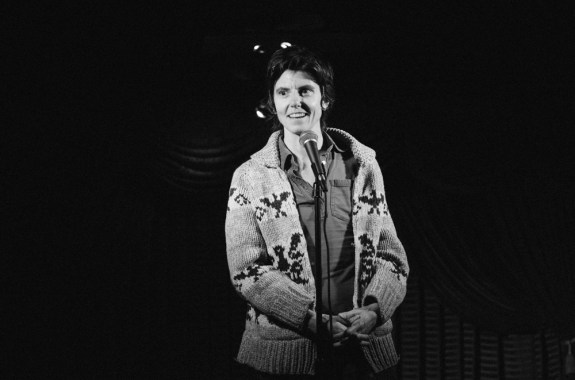Christopher Intagliata was Science Friday’s senior producer, which means he was chief cheerleader for all the radio and podcast projects. He helped to select and shape stories, or put them to a gentle death if necessary. He was also the coordinating producer for Science Friday’s live stage events around the nation, and has skated Olympic ice and served as a prop in an optical illusion for SciFri.
Christopher started at Science Friday as an intern in summer 2008, until the day Ira Flatow called him at home, triggering enormous anxiety about the latest script he’d written, to ask if he wanted to be a producer. His favorite stories usually involve microbes or food or both, but anything can pique his interest—other than ocean chemistry. Sorry.
He also reports regularly for Scientific American‘s “60-Second Science” podcast, and was a 2015 Woods Hole Ocean Science Journalism fellow. Prior to becoming a science journalist, he taught English to soldiers and bankers in Verona, Italy, and traversed the Sierra Nevada mountains as a field biologist, on the lookout for mountain yellow-legged frogs. He speaks fluent Italian, awkward Japanese, and passable Ira Flatowese.
He is now an editor for All Things Considered.
16:43
Simulating the Red Planet, on the Pale Blue Dot
What’s it like to live—and cook—on Mars? To find out, researchers are simulating Mars missions in Russia and on the slopes of a Hawaiian volcano.
5:25
Cold-Water Fish Break the Ice with Antifreeze
Cold-water fish and snow-dwelling insects have evolved antifreeze proteins to avoid icing up. This natural antifreeze also keeps the “ice” out of some ice creams.
17:03
‘Full Planet, Empty Plates’
In his new book, Lester Brown says the world’s food supply is tightening—and the reasons are many.
16:40
A Journey to the Oort Cloud, Where Comets Are Born
The comet ISON, discovered by two amateur astronomers last year, will zoom past Earth next fall. But where did it come from?
6:31
Negative Temperatures That Are Hotter Than the Sun
Scientists have cooled potassium gas to one billionth of a degree below absolute zero. But in the quantum world, that’s actually “hotter” than the sun. How is that possible?
Stem Cells Treat Lou Gehrig’s Disease, In Mice
Stem cell implants slowed the onset of symptoms—and scientists say human trials aren’t far behind.
Debunking Doomsday and Exploring Maya Science
Two archaeologists weigh in on what the ancient Maya actually said about 2012. Spoiler: not much.
Future Fibers May Be Spun From Slime
The hagfish or “slime eel” shoots out slime containing silk-like fibers of remarkable strength.
Ask a Quantum Mechanic
Teleporting data, time travel, quantum computers. Sci-fi or science reality? ‘Quantum mechanic’ Seth Lloyd joins us to talk about the mysteries of the quantum world.
No Joke — Why Even Tragedy Gets a Laugh
A comedian and a neuroscientist walk into a bar… er, nevermind. Tig Notaro and Robert Provine talk about why we laugh at even the grimmest of subjects.

